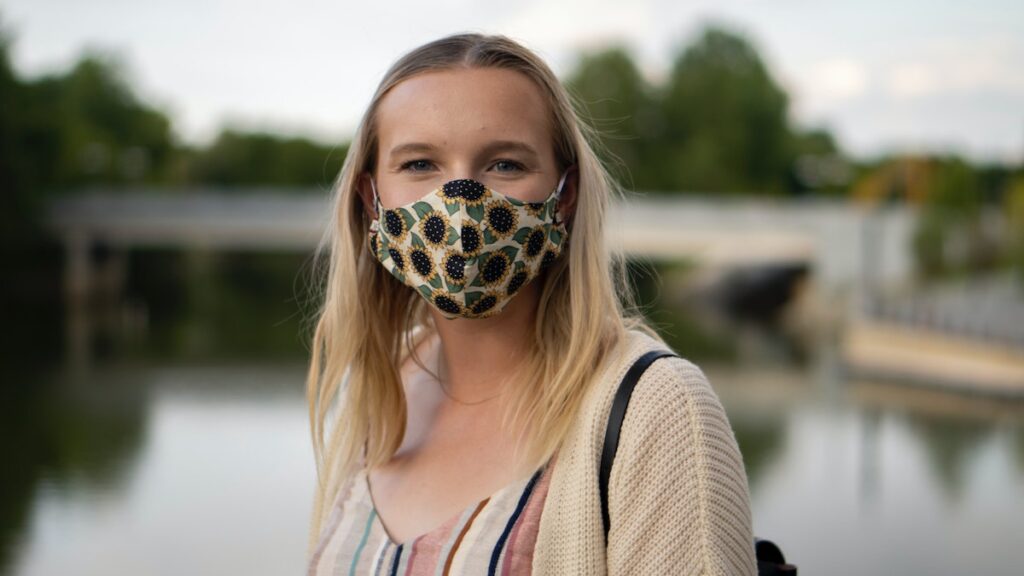
The COVID-19 pandemic has massively impacted on life as we used to know it, and more specifically, has hit the health and social care sectors with great force. Many individuals working in these settings had to manage overwhelming workloads and multiple challenges; as well as dealing with the increased exposure to the virus and the potential consequences of that on both themselves and their loved ones (Hu et al, 2020).
Consequently, the mental health of frontline health and social care workers (HSCWs) has declined (Greenberg et al, 2020), with the need for a national ‘call for action’ for UK mental health professionals to support frontline workers (Holmes et al, 2020). However, we cannot overlook the fact that many of us working in mental health roles are also living through the pandemic, and therefore understanding the experiences of those providing support for others during this time is crucial to ensure all healthcare workers are supported within their roles.
In response, Jo Billings and colleagues (2021) aimed to bridge this gap by conducting qualitative interviews with those working in supportive roles for frontline HSCWs; exploring their experiences, needs and views during these unprecedented times.

What can we learn about the experiences of mental health professionals who are providing rapid support for frontline health and social care workers?
Methods
Semi-structured interviews were conducted with 28 mental health professionals. All participants had provided support for frontline HSCWs, with the majority being re-deployed or involved in setting up new staff support services in response to the pandemic. Interviews were carried out via telephone or online video call during June-July 2020.
Topics explored included: usual working roles; experiences of supporting HSCWs; feelings towards doing this work and the impact of the role; challenges and helpful strategies during this time; and what support may be useful moving forward. Reflexive thematic analysis was carried out on the interview data (Braun & Clarke, 2006).
Results
Six overarching themes were identified:
1. Stepping up
- Motivation and purpose: Mental health professionals reported high motivation in supporting HSCWs, wanting to ‘step up’ which subsequently provided a strong sense of purpose.
- Learning and growth: This time provided opportunities to utilise transferable skills and influence the development of new clinical pathways.
- Additional responsibilities and increased workload: New ways of working were not sustainable and meeting the needs of those working differing and unpredictable shifts proved challenging.
There was always someone who wanted to speak to you who had been working all week and wanted to talk at ten o’clock on a Friday night.
2. Uncertainty, inconsistency, and lack of knowledge
- Anxiety and uncertainty: Due to the nature of the work, programmes and protocols for supporting staff were limited, with professionals worrying whether they were doing the right thing.
- Inconsistency of service provision: services were set up rapidly, and coordination, as well as models and approaches, was felt to be a little “hap-hazard”.
- Lack of specialist knowledge: Many had not worked in physical or social care settings previously, with limited medical knowledge and experience of working in staff support. There was also a lack of awareness around what other services were providing (e.g., occupational health).
3. Blurred boundaries – colleagues or clients?
- Shared experience: The relational experience and identification of working with colleagues led to an additional need to care for them, as well as blurred boundaries.
You can’t really separate your job from the situation.
- Confidentiality: Lack of clarity around confidential access to support and the challenge of supporting an individual who you may then work with professionally in an MDT (multi-disciplinary team).
4. Isolation
The majority of mental health professionals were working from home, with support from teams and managers in place, but this often felt isolating. Reduced opportunities to socialise and manage work alongside personal commitments was challenging.
5. Self-sacrifice and subjugation of own needs
Significant sacrifices had been made by mental health professionals, impacting their own well-being and little acknowledgement for their own self-care. Working additional hours, evenings and weekends, was commonplace; with many feeling guilty for putting their own needs first.
6. Vicarious traumatisation and vicarious moral injury
Mental health professionals experienced traumatic and morally injurious events, both indirectly and directly.
- Traumatic exposure: Hearing about the experiences of HSCWs was unfamiliar, and for some, this triggered their own anxieties and worries about COVID.
We’re also operating in the same shared traumatic reality as everybody else…
- Ethical and moral dilemmas: Feeling as though they couldn’t do anything to help, as well as managing decisions with regards to who they would offer support to and who they wouldn’t, led to heightened feelings of guilt.

“It has given us a sense of purpose, of something that we could do positively with the skills that we have during a time where everything looks really dark.”
Conclusions
The authors concluded:
The COVID-19 pandemic has accelerated our understanding of these issues and provides an opportunity to design support services that best meet the needs of HSCWs; making them acceptable, accessible and equitable.
and;
Factors that usually mitigate the risk of adverse mental health outcomes amongst mental health professionals have been compromised…this in combination highlights an urgent need to attend to the mental health and well-being of mental health professionals supporting the frontline workforce.

Improvement and recognition of mental health support for both HSCWs, and mental health professionals themselves, is required.
Strengths and limitations
A qualitative approach is particularly useful when exploring under-researched areas. Given the nature of the pandemic and the lack of evidence within the area, this allowed the current study to provide an in-depth, first-hand account of the experiences of mental health professionals. A real effort has been made by the authors to recruit a diverse sample working within all regions of the UK, as well as those from differing professional backgrounds and career stages, adding to the transferability of these findings. However, there is a larger proportion of participants from England, and more specially, London. Therefore, in order to understand the extent to which these findings can be generalised, a larger study, gaining a wider perspective from mental health professionals across the UK is warranted.
An obvious limitation of this study, as noted by the authors themselves, is that the age and ethnicity of participants was not recorded. Given suggestions that certain ethnic groups may be more at risk of COVID; this would be interesting to explore in terms of the trauma, both direct and indirect, described in this study. This may also be influential in the suggestions of building an evidence-base for the needs of both HSCWs and mental health professionals, with tailored approaches to support often being more effective when recognising the value and influences of personal characteristics.

Given the nature of the pandemic and the lack of evidence, this qualitative study to provide an in-depth, first-hand account of the experiences of mental health professionals supporting frontline care workers.
Implications for practice
In addressing the main conclusions, the authors make key recommendations, including:
- Prioritisation of well-being support for mental health professionals; with frequent monitoring and supervision.
- Integration of the needs of HSCWs into mental health professionals’ training
- Development, through co-production with HSCWs and mental health professionals, of an evidence-base for supporting HSCWs
- Further research into the mental health of mental health professionals
Whilst further evidence and research is needed, this study provides a first-hand account of experiences of mental health professionals supporting frontline HSCWs during the COVID-19 pandemic. Further follow-up for subsequent waves and in order to further understand any strategies and changes that may have occurred since this study has been conducted is required.
Through my involvement with the ACP-UK network for Staff Health and Wellbeing, and working in the NHS during the pandemic, many of the experiences of mental health professionals described in this study echoed with those of myself, and my colleagues. Whilst many of us seem to be aware of these difficulties; overcoming them and implementing the strategies to do this is always more challenging and doesn’t come without barriers. To utilise these findings on the ground, a collaborative approach between researchers, organisations and clinicians is required. The suggestion of co-production is particularly important in ensuring that the gaps in our knowledge to date can be bridged; with the aim to work towards a more holistic and tailored approach to staff support for both HSCWs, and mental health professionals, both now and in the future.
At this moment in time, there is no guarantee as to what the future of the healthcare system and the COVID-19 pandemic may look like in the coming months or years. This study provides the first step in gaining a greater understanding of the experiences and needs of both HSCWs, and mental health professionals, during the first wave. In order to further develop these findings and ensure the key areas for improvement are addressed, future research with a larger sample, with particular attention to personal characteristics (e.g., ethnicity), is needed.

A holistic and tailored approach to staff support for HSCWs, and mental health professionals, both during the pandemic and beyond, would be particularly helpful in ensuring staff feel supported in their roles.
Statement of interests
LC is an alumni of UCL Division of Psychiatry and has attended several ACP-UK meetings with the lead author (JB), but has no involvement in this research.
Links
Primary paper
Billings, J., Biggs, C., Ching, B. C. F., Gkofa, V., Singleton, D., Bloomfield, M., & Greene, T. (2021). Experiences of mental health professionals supporting front-line health and social care workers during COVID-19: qualitative study. BJPsych open, 7(2).
Other references
Braun, V., & Clarke, V. (2006). Using thematic analysis in psychology (PDF). Qualitative research in psychology, 3(2), 77-101.
Greenberg N., Weston D, Hall C. et al. (2020). The mental health of staff working in intensive care during COVID-19. medRxiv 2020.11.03.20208322.
Holmes, E. A., O’Connor, R. C., Perry, V. H. et al (2020). Multidisciplinary research priorities for the COVID-19 pandemic: a call for action for mental health science (PDF). The Lancet Psychiatry.
Hu D., Kong Y., Li W. et al (2020). Frontline nurses’ burnout, anxiety, depression, and fear statuses and their associated factors during the COVID-19 outbreak in Wuhan, China: A large-scale cross-sectional study. E-Clinical Medicine, 24, 100424
Photo credits
- Photo by Roman Kraft on Unsplash
- Photo by JESHOOTS.COM on Unsplash
- Photo by Zach Vessels on Unsplash
- Photo by Diana Polekhina on Unsplash
- Photo by Siora Photography on Unsplash
